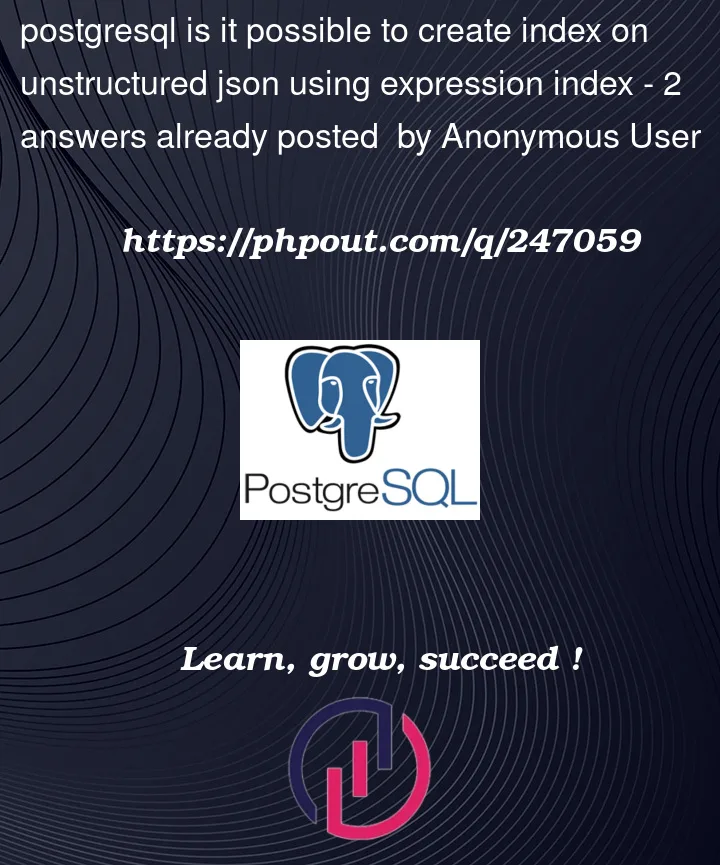i’m having a little problem, trying to optimaze quering data from a unstructured json field.
By unstructured i mean, each json field is unique on each row.
by using this query, i want to collect all the keys which are matching the prefix.
select j.key as value
from tasks t, lateral jsonb_each_text(t.tags) j
where j.key ilike '%some_key%'
group by j.key
order by j.key;
but on loaded table these queries take up to 20k millis to execute.
I found an index which can work with ilike statements (trgm_idx)
but how to put it here, still have no clue.
please great postgres masters, help me if you have any ideas
P.S. small update, if you know how to make it even faster if i use
select j.key as value
from tasks t, lateral jsonb_each_text(t.tags) j
where j.key ilike 'some_prefix%'
group by j.key
order by j.key;
i can work around it




2
Answers
This is a poor design, you should probably rethink it. But it is possible. You would need to create a helper function which returns all keys munged into one string, picking a suitable delimiter which is not going to show up in either keys or in patterns:
This query will return each task at most once, unlike your original query, so may need some tweaking to make it do exactly what you want. Maybe (untested):
The first ilike should provide performance assuming few tasks have any qualifying keys (nor many false positives). The 2nd one produces just the specific keys which match, including multiplicity of them.
Judging by the use of
jsonb_each_text(), you’re actually dealing withjsonbrather than plainjson, sojsonpathfunctions are available to you without having map totextIn PostgreSQL JSONPath there’s a
like_regexfilter expression you can use with the match operator@?. Sadly, even though that match operator is supported byjsonb_opsas well asjsonb_path_opsoperator classessearching key names requires
.keyvalue().keyaccessor that won’t work with that. Still, you might gain some performance due to the mere fact you’re not deconstructing yourjsonb‘s, casting to text, then matching against that, but rather interact with them directly, through a purpose-built function: demo